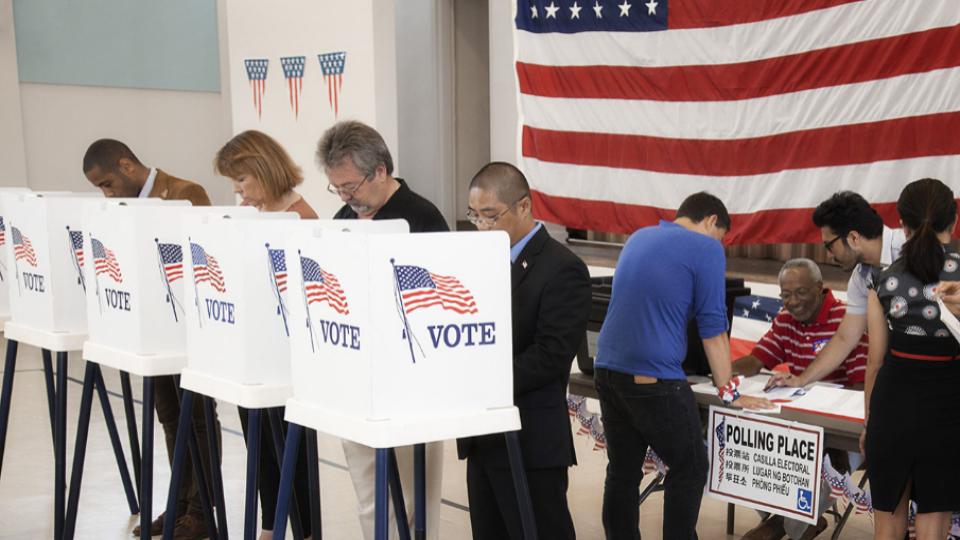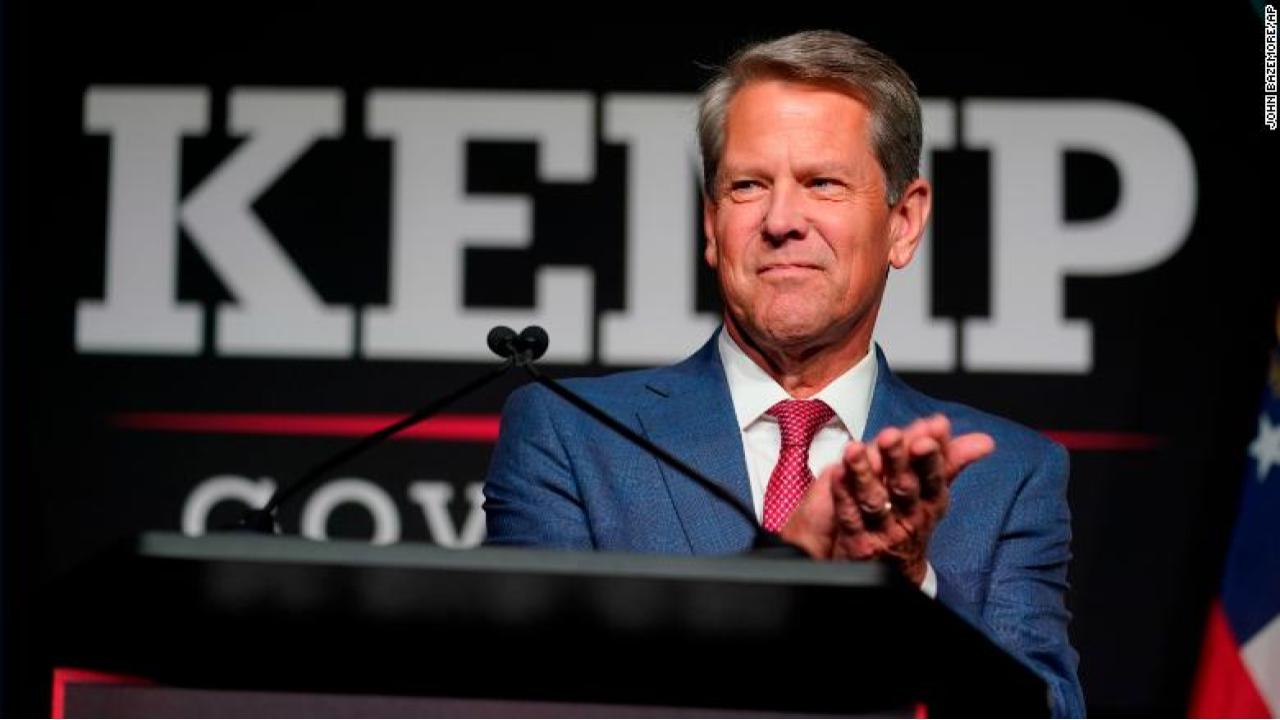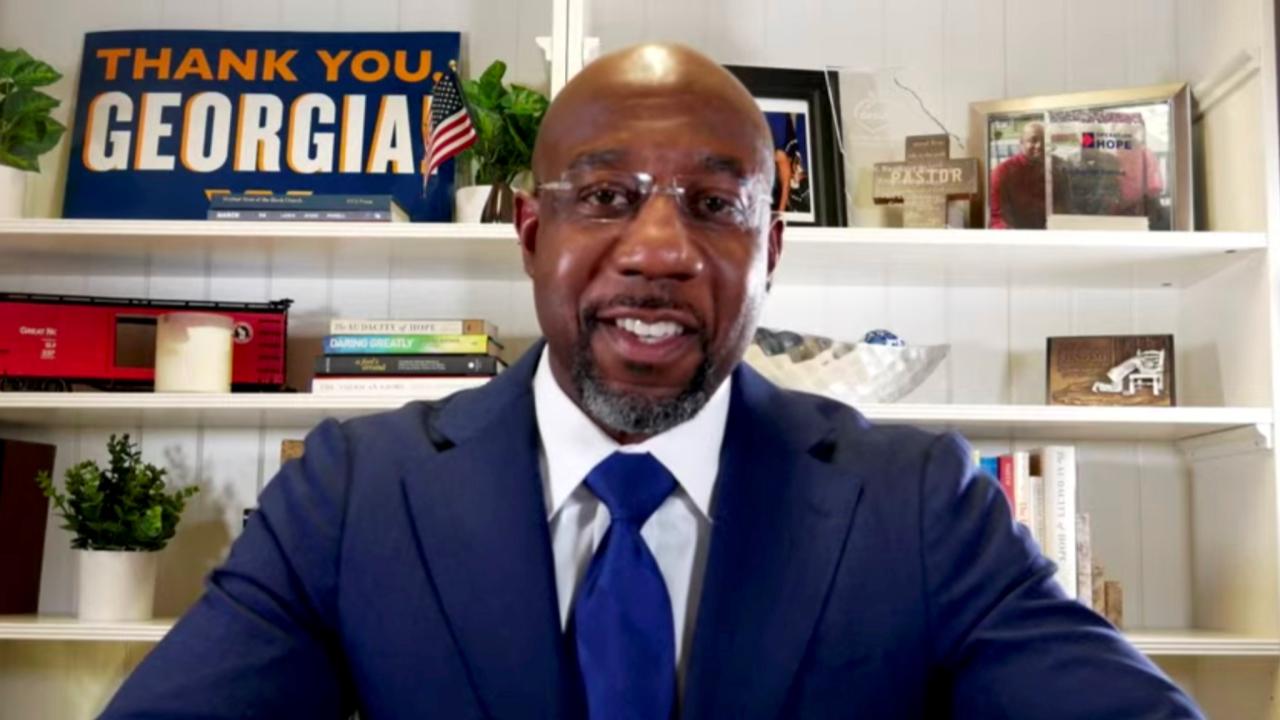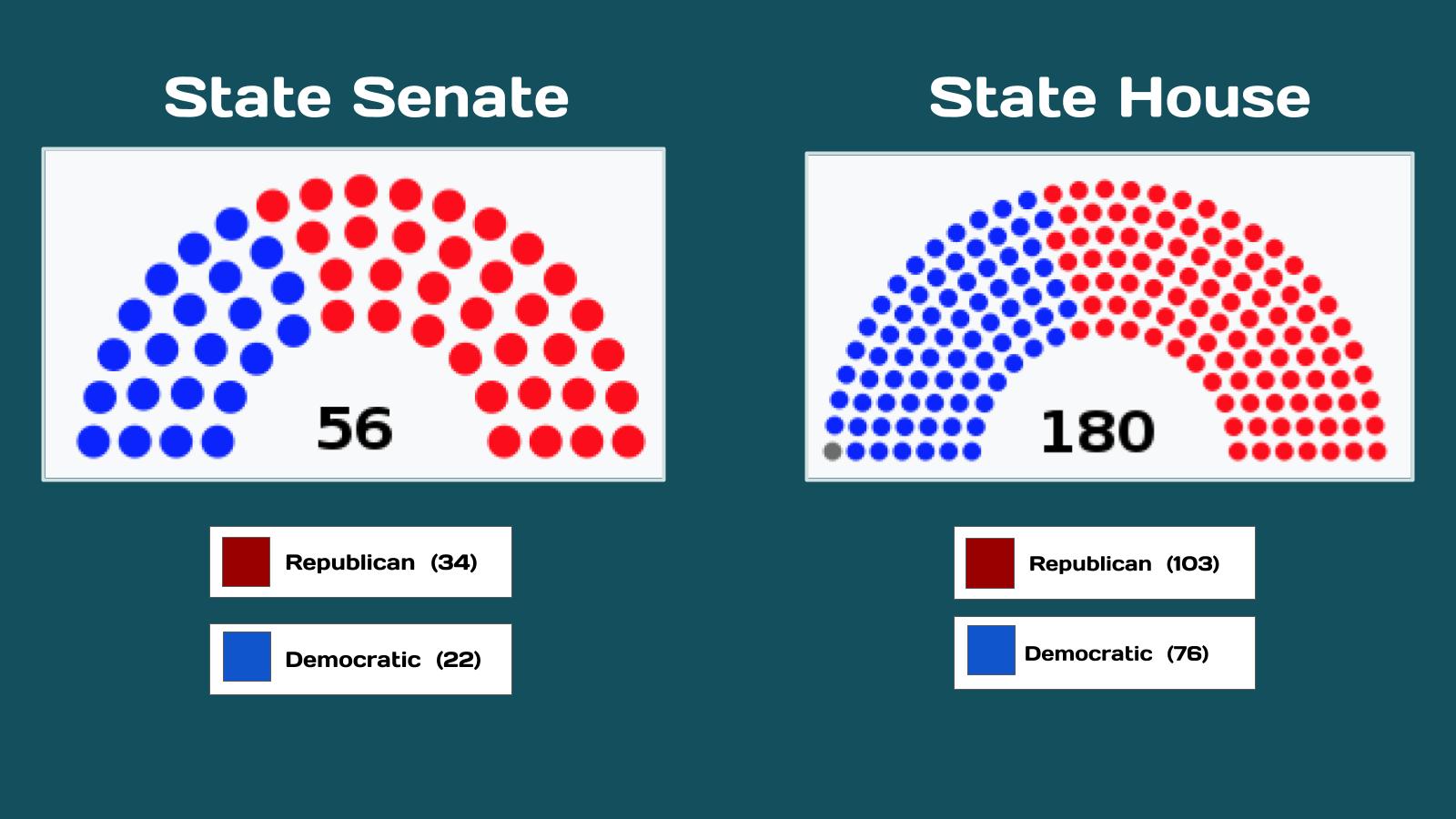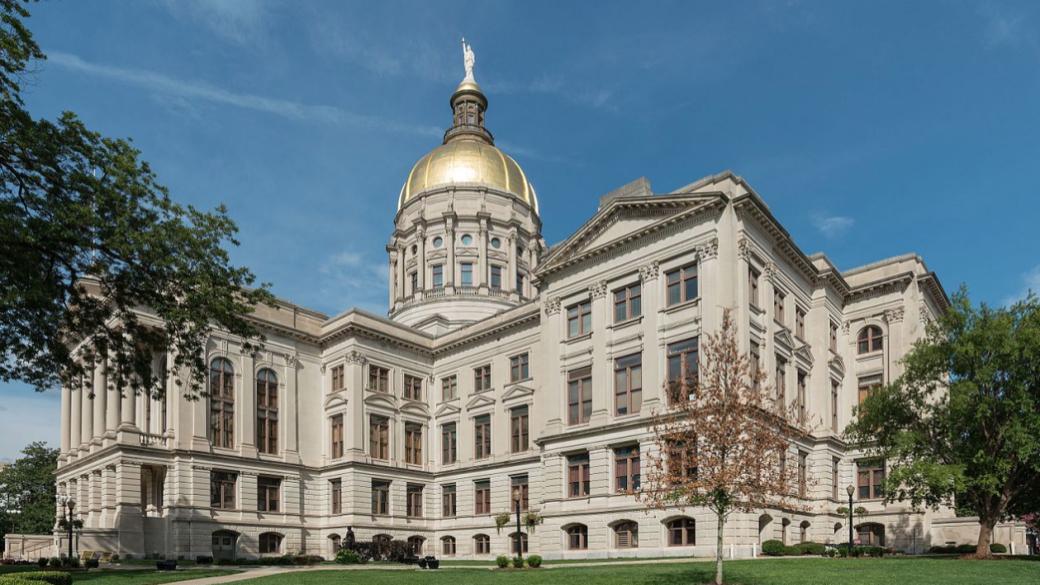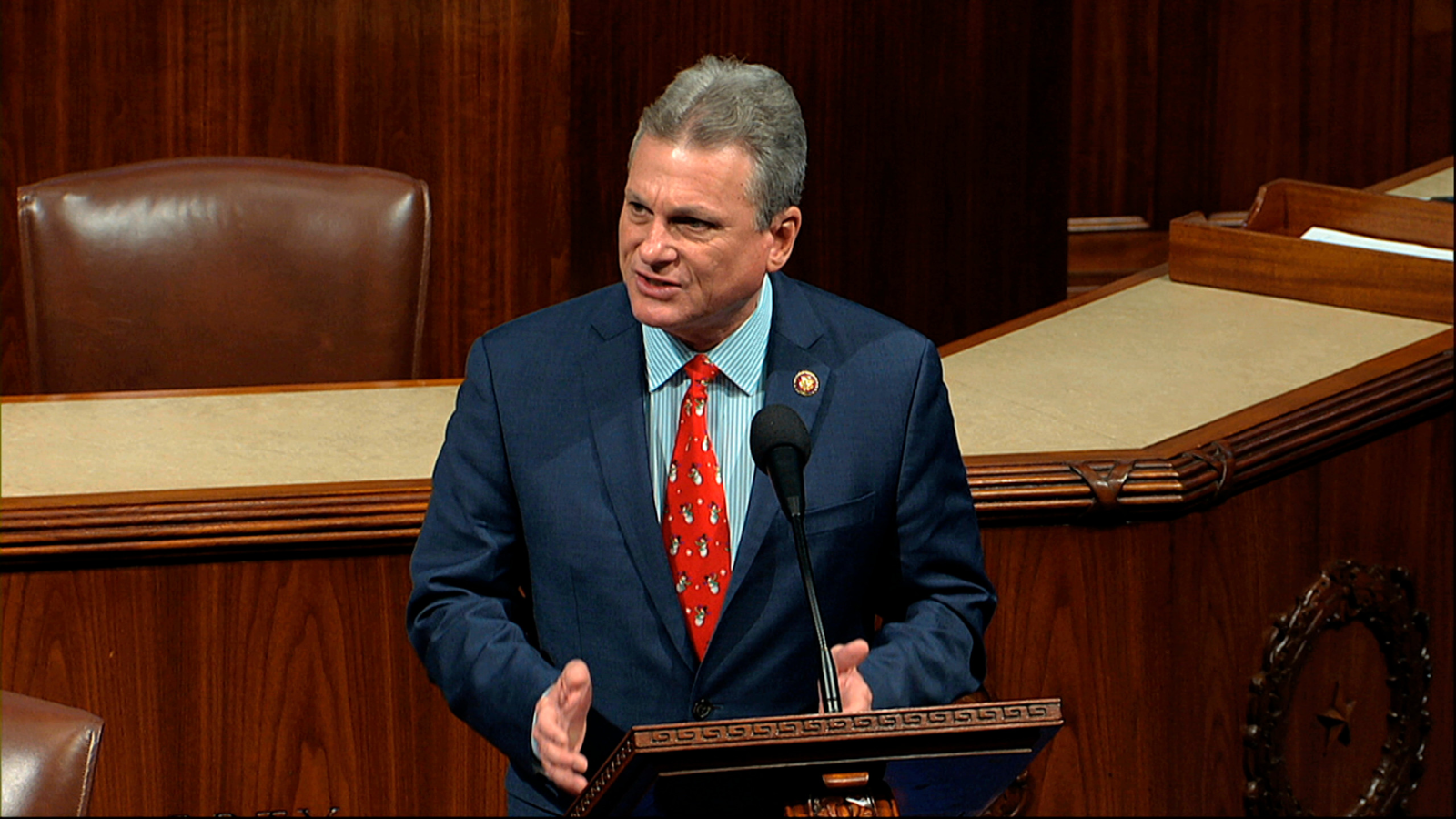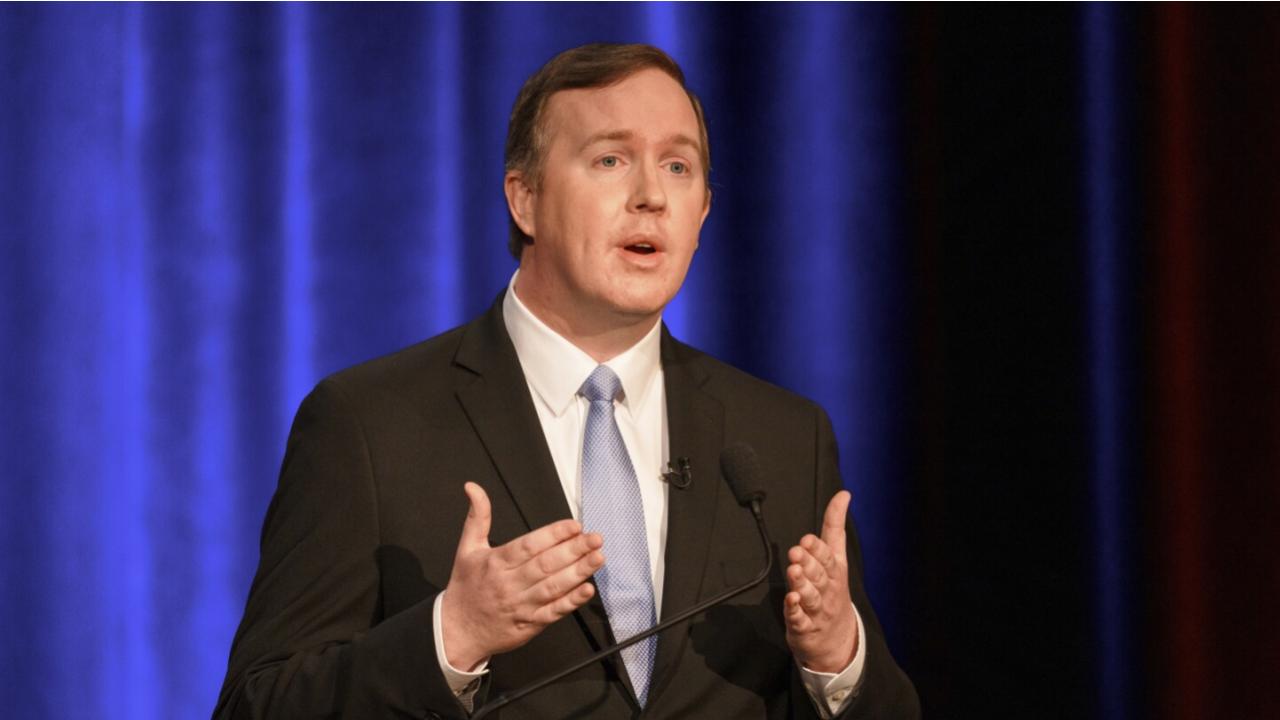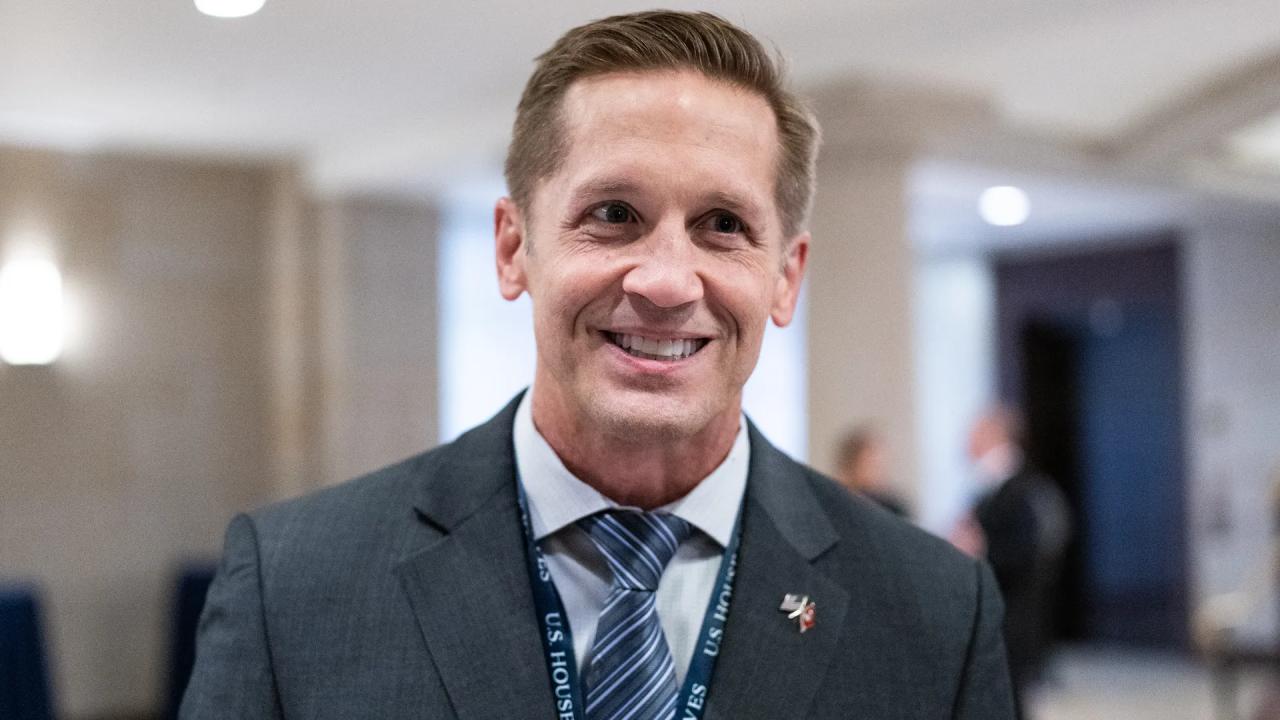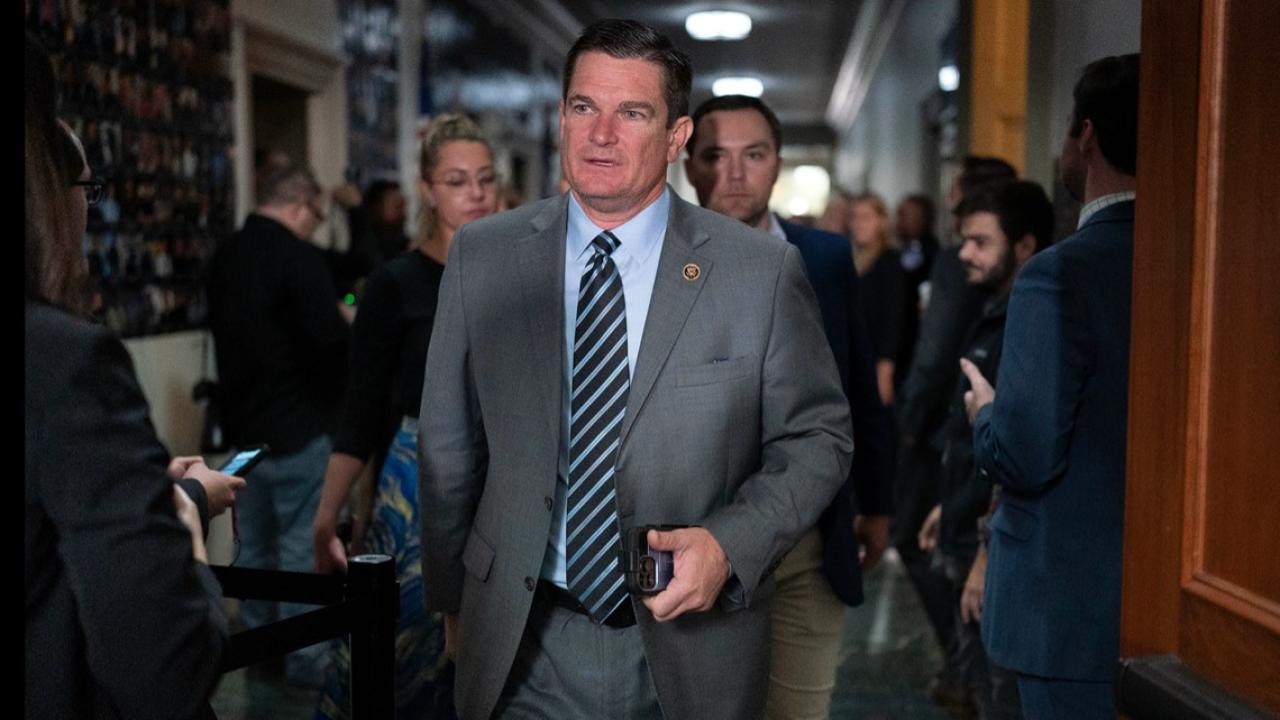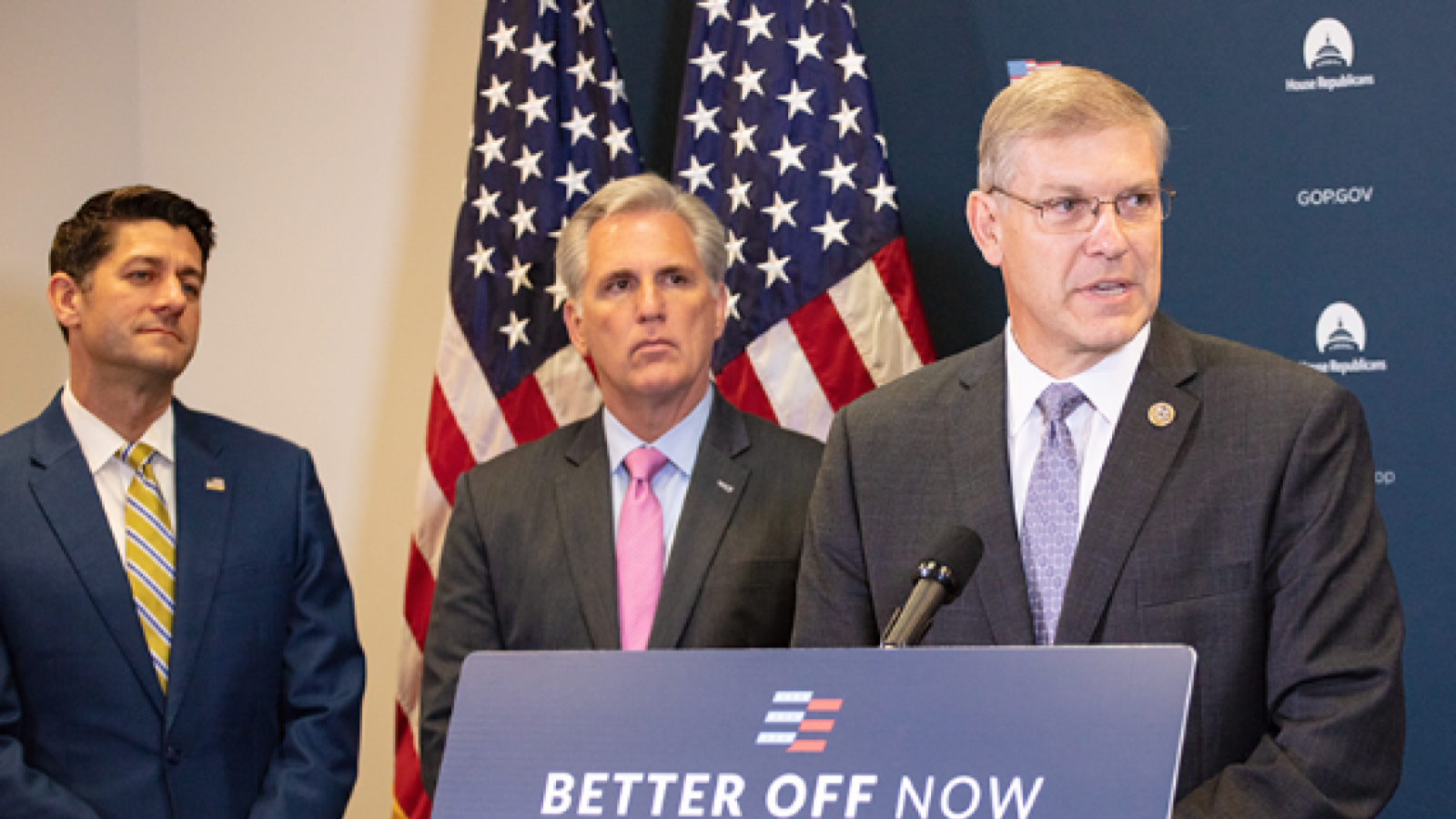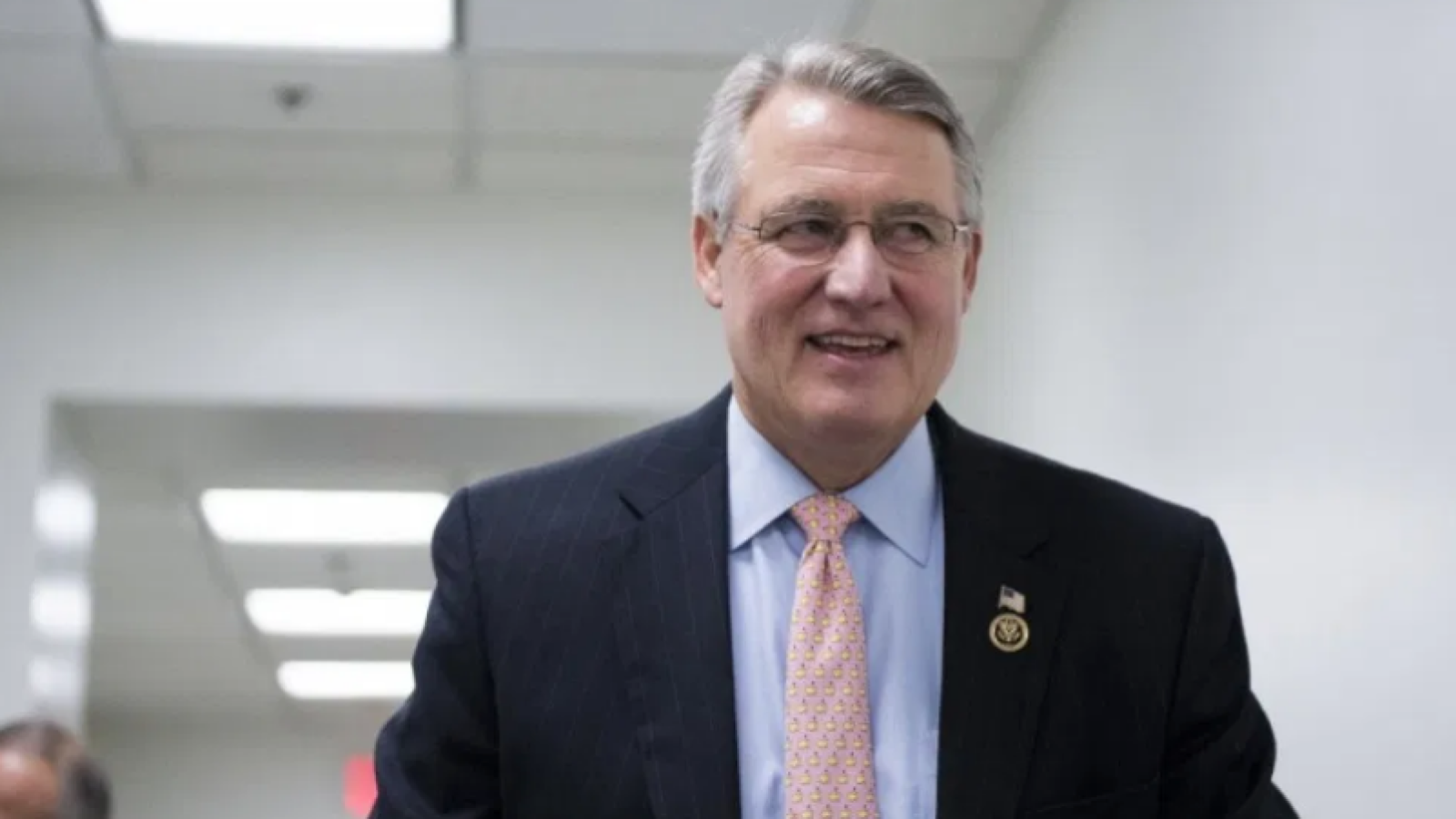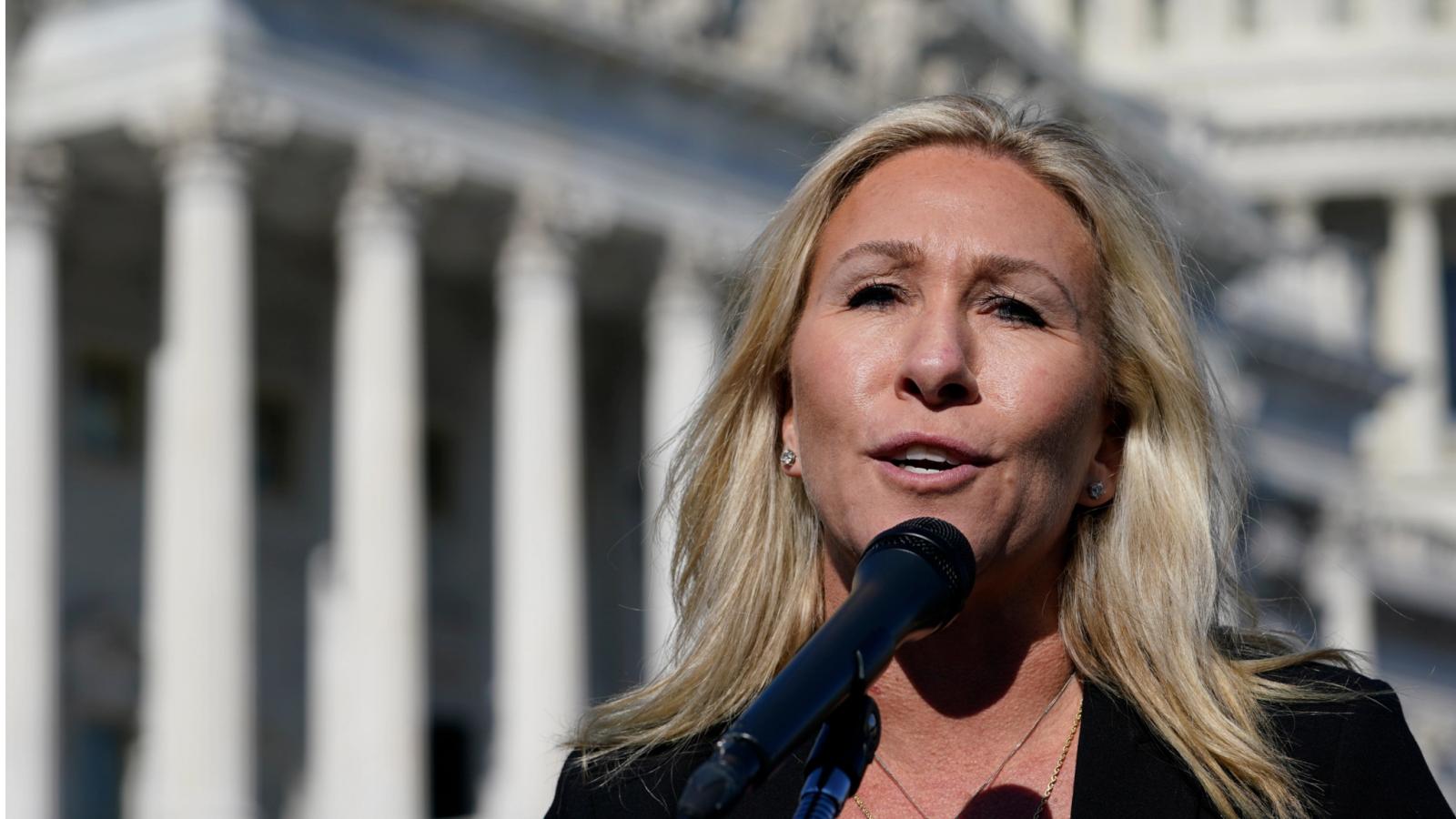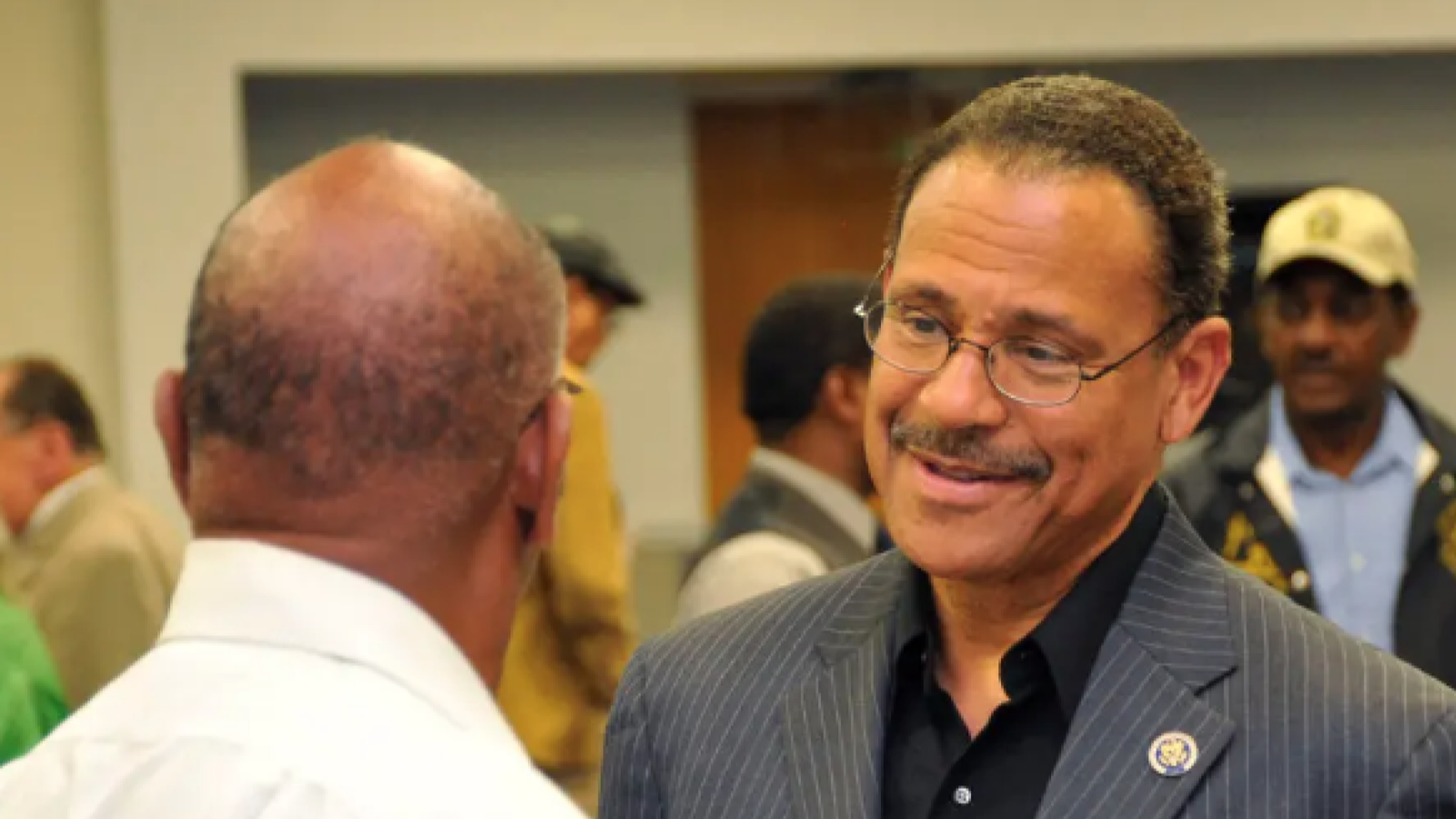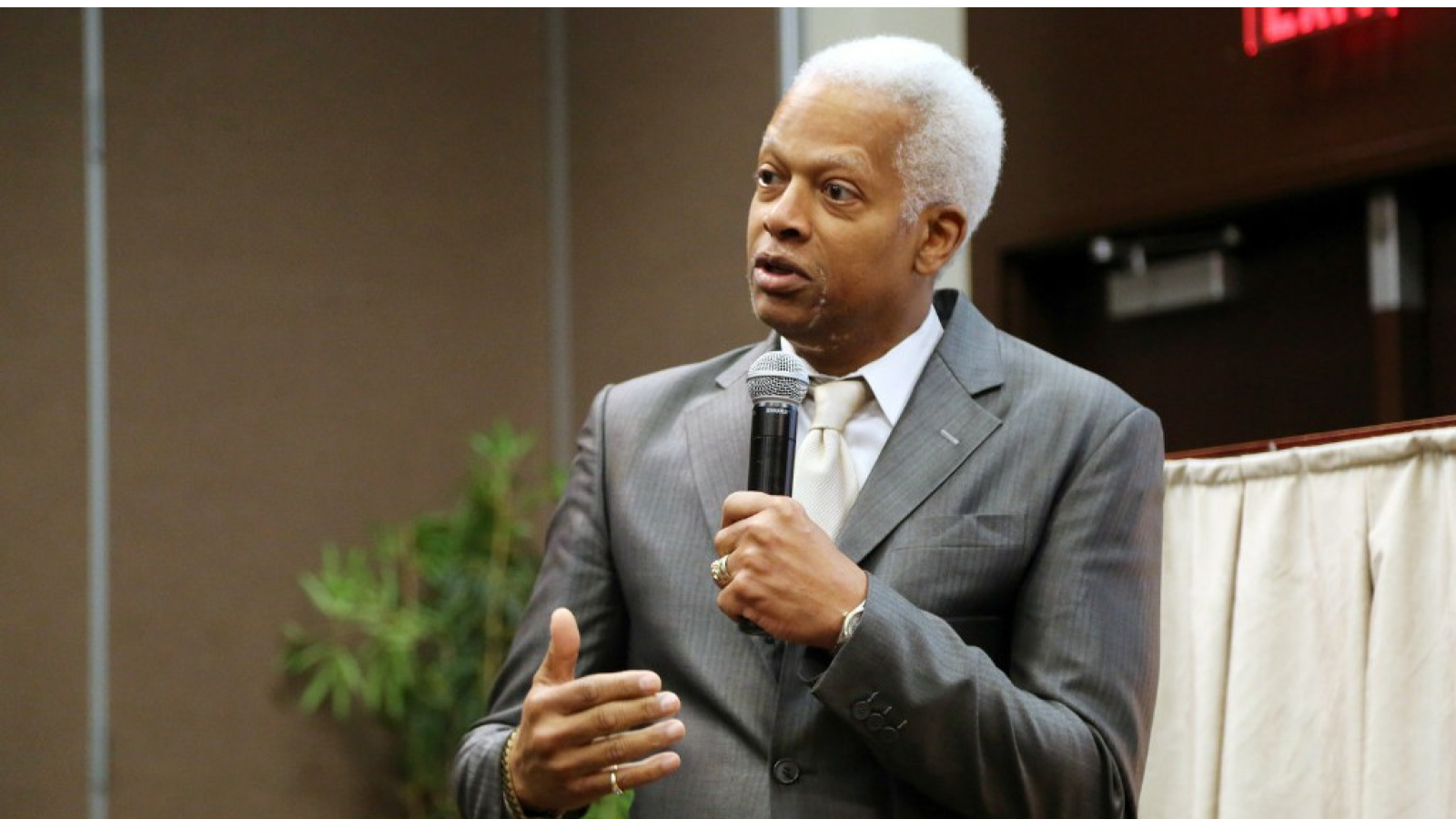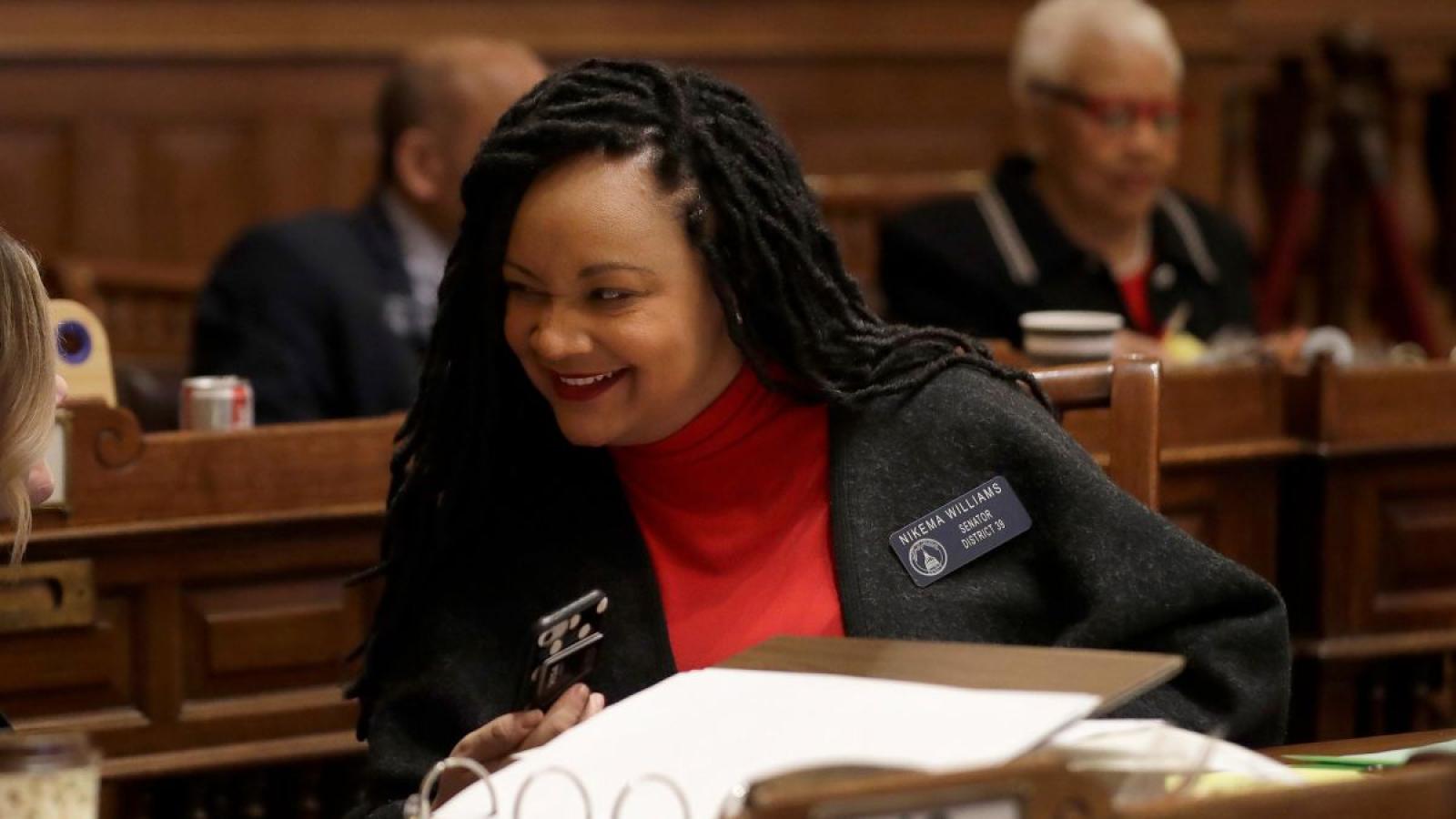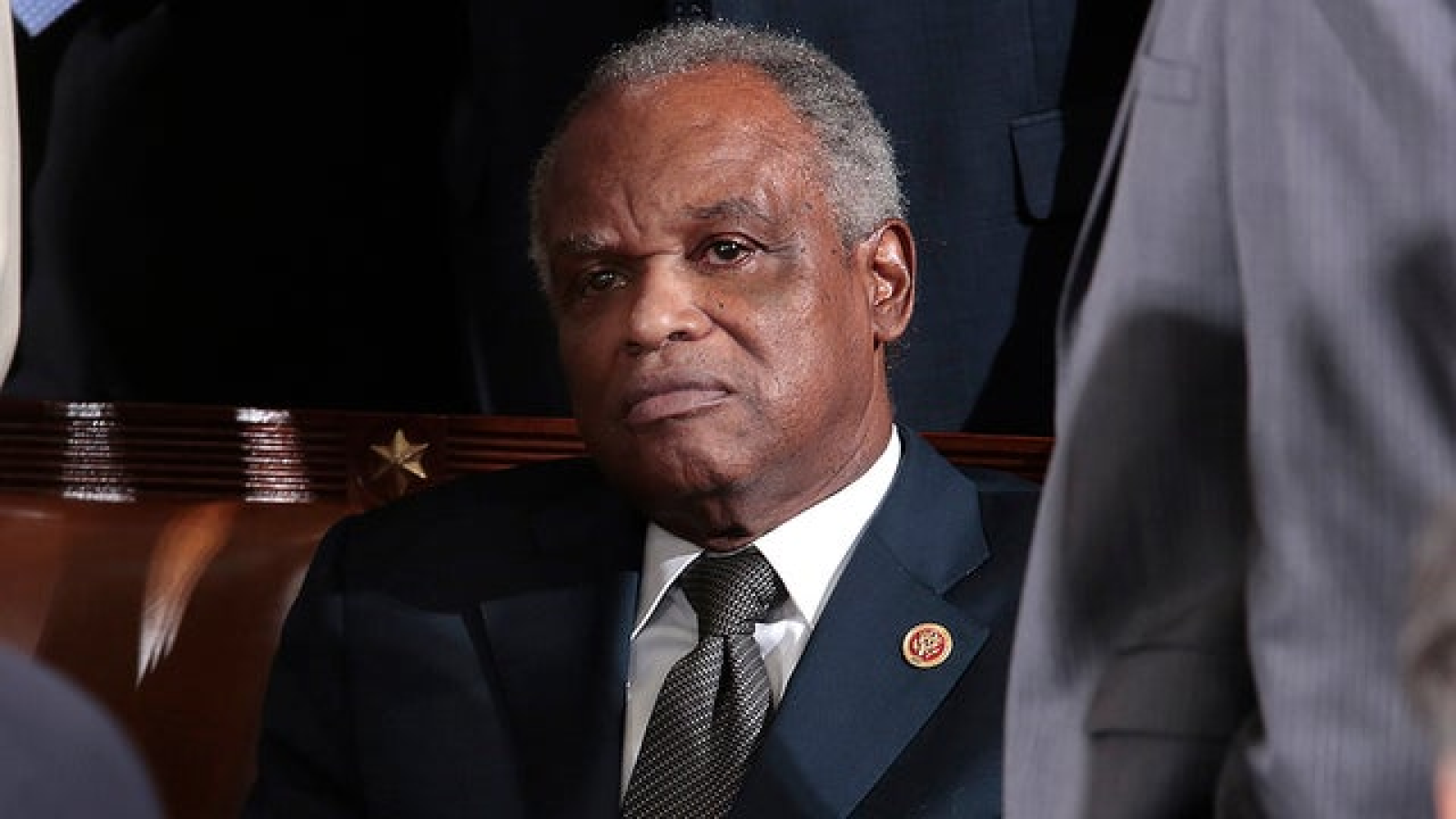Summary
Florida is located in the Southern region of the USA with Atlanta as its capital. Brian Kemp (R) is Governor.
The Georgia legislature, founded in 1777, has 56 Senate members and 180 House members.
OnAir Post: Georgia onAir Hub
News
The base content in each post in this Georgia onAir Hub has been updated as of 12/20/23. In addition to the eight posts on the home page, in depth posts on each US House member and posts on Georgia government and elections have been started. These posts have been shared with the US onAir Hub and will updated in the US onAir automatically when they are updated in this hub.
If your university or nonpartisan organization (such as a government focused research center, citizen engagement program or a League of Women Voters chapter) is interested in assisting the US onAir network to help curate new issue posts or other posts on this Hub and moderate the forums in each post, contact Ben Murphy at Ben.Murphy@onair.cc.
We are also supporting college students to start an onAir chapter on the their campus to coordinate the curation and moderation of posts especially on state and local representatives and government.
About
This Georgia onAir Hub is managed by students supporting Georgians to become more informed about and engaged in local, state, and federal politics while facilitating more civil and positive discussions with their representatives, candidates, and fellow citizens.
- Georgia onAir is one of 50 state governance and elections hubs that the US onAir Network is providing to help reinvigorate US democracy. This post has short summaries of current state and federal representatives with links to their complete Hub posts. Students curate post content from government, campaign, social media, and public websites. Key content on the Georgia Hub is also replicated on the US onAir nations Hub at: us.onair.cc.
- Georgia students will be forming a GA Student onAir Council to monitor this Hub’s content. As more students participate and more onAir chapters are started, we will expand to include more state and local content as well as increase the number of aircasts – student-led, livestreamed, online discussions with candidates, representatives, and the public.
Find out more about Who Represents Me in Georgia
Learn more about the US onAir Network
All hub content in onAir hubs is free to the public. Hub ontent is under the Creative Commons Attribution-NonCommercial license which permits content sharing and adaptation by nonprofit organizations as long as proper attribution is given to its author(s) and is used for non-commercial purposes. Content and moderation guidelines reinforce our commitment to fact-based, comprehensive content and civil and honest discourse.
To participate in aircast and post discussions, email usdemocracy@onair.cc and include your first name last name, and zipcode. Your real name and any other profile information will not be displayed unless you choose to do so. Your personal information is not shared with any other website or organization.
Hub membership will enable you to:
- Participate in issue and interview aircasts (student-led livestreamed discussions);
- Interact directly with post authors and curators giving them feedback, content suggestions, and asking questions;
- Ask questions, make suggestions, and give endorsement to representatives
Web Links
State Representatives
Governor Brian Kemp
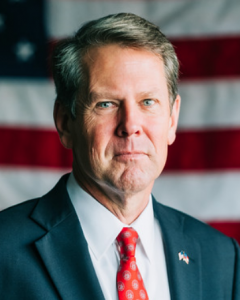 Current Position: Governor since 2018
Current Position: Governor since 2018
Affiliation: Republican
Former Positions: Secretary of State from 2010 – 2018; State Senator from 2003 – 2007
Kemp served as the 27th secretary of state of Georgia from 2010 to 2018, and as a member of the Georgia State Senate from 2003 to 2007. Before entering politics, he owned several agribusinesses, financial services, and real estate companies.
OnAir Post: Brian Kemp – GA
US Representatives
Senator Jon Ossoff
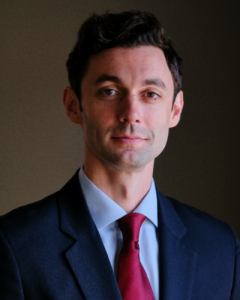 Current Position: US Senator
Current Position: US Senator
Affiliation: Democrat
Former Position: Documentary film producer and investigative journalist. from 2007 – 2021
Other Positions:
Chair of the Homeland Security Permanent Subcommittee on Investigations
Featured Quote:
The @JudiciaryDems and @SenJudiciaryGOP came together this morning to pass four bipartisan bills co-sponsored by Sen. @ossoff out of committee to make prescriptions more affordable and challenge price gouging by drug companies.
OnAir Post: Jon Ossoff – GA
Senator Raphael Warnock
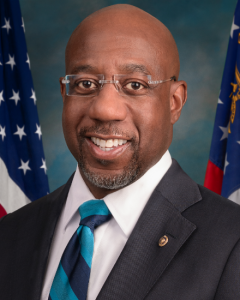 Current Position: US Senator since 2021
Current Position: US Senator since 2021
Affiliation: Democrat
Former Position: Pastor from 2005 – 2021
Other positions: Chair, Subcommittee on Commodities, Risk Management, and Trade:
Chair, Subcommittee on Financial Institutions and Consumer Protection
Warnock has been the senior pastor of Atlanta’s Ebenezer Baptist Church since 2005. He came to prominence in Georgia politics as a leading activist in the campaign to expand Medicaid in the state under the Affordable Care Act. Warnock is the first African American to represent Georgia in the Senate, and the first Black Democrat elected to the Senate from a Southern state.
OnAir Post: Raphael Warnock – GA
Buddy Carter GA-01
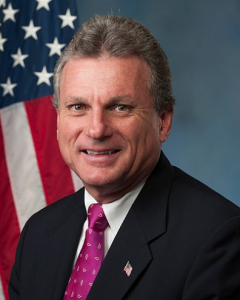 Current Position: US Representative since 2015
Current Position: US Representative since 2015
Affiliation: Republican
Former Position: State Senator from 2009 – 2014
District: Entire coastal area of Sea Islands and much of the southeastern part of the state. In addition to Savannah, the district includes the cities of Brunswick, Jesup, and Waycross.
Upcoming Election:
Featured Quote:
I have introduced Empowering Law Enforcement Act – @SenTuberville introduced companion legislation in the Senate- State & Local law enforcement should have the authority and ability to respond to the influx of illegal immigrants!
OnAir Post: Buddy Carter GA-01
Sanford Bishop GA-02
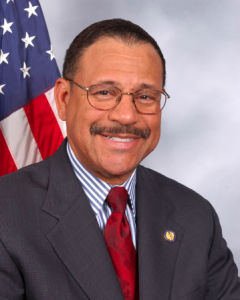 Current Position: US Representative of GA-02 since 1993
Current Position: US Representative of GA-02 since 1993
Affiliation: Democrat
Former Positions: State Senator from 1991 – 1993; State Delegate from 1977 – 1991
Other Positions: Subcommittee on Agriculture, Rural Development, Food and Drug Administration, and Related Agencies
District: Southwestern portion of the state inclucing Albany, Americus, Bainbridge, and Thomasville. It also contains most of Columbus and most of Macon. The district is also the historic and current home of former President Jimmy Carter.
Upcoming Election:
He served in the United States Army between 1969 and 1971.[4] Bishop subsequently operated a law firm in Columbus, Georgia. Bishop was elected to the Georgia House of Representatives in 1977, where he remained until being elected to the Georgia Senate in 1990.
OnAir Post: Sanford Bishop GA-02
Brian Jack GA-03
 Brian Timothy Jack (born February 17, 1988) is an American political advisor and politician and who served as White House Political Director under President Donald Trump from 2019 to 2021 and as a senior advisor on Donald Trump’s 2024 presidential campaign.
Brian Timothy Jack (born February 17, 1988) is an American political advisor and politician and who served as White House Political Director under President Donald Trump from 2019 to 2021 and as a senior advisor on Donald Trump’s 2024 presidential campaign.
Early in his career, Jack worked at the Republican National Committee (RNC) and the American Israel Public Affairs Committee (AIPAC). During the 2016 Republican primary, Jack worked on Ben Carson’s presidential campaign before joining Trump’s campaign. After Trump was elected, Jack worked in the presidential transition of Donald Trump.
OnAir Post: Brian Jack GA-03
Hank Johnson GA-04
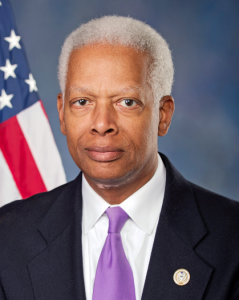 Current Position: US Representative of GA-04 since 2007
Current Position: US Representative of GA-04 since 2007
Affiliation: Democrat
Other Positions: Subcommittee on Courts, Intellectual Property and the Internet
District: many of Atlanta’s inner eastern suburbs, such as Conyers, Covington, Decatur, Lilburn, Stone Mountain, and Lithonia.
Upcoming Election:
Featured Quote:
States across the country are ramping up efforts to restrict the right to vote. I’m proud to support the John R. Lewis Voting Rights Advancement Act for voters today, voters tomorrow, & all those who sacrificed so we could cast a ballot freely and fairly. We must pass #HR4. Pinned Tweet
Johnson is one of only three Buddhists to have served in the United States Congress. From 1989 to 2001, Johnson served as an associate judge of the DeKalb County magistrate’s court.[7] He was elected to the DeKalb County Commission in 2000 and served from 2001 to 2006.
OnAir Post: Hank Johnson GA-04
Nikema Williams GA-05
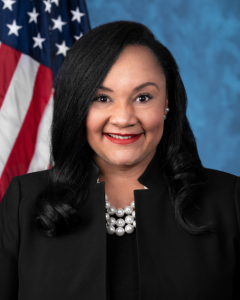 Current Position: US Representative of GA 5th District since 2021
Current Position: US Representative of GA 5th District since 2021
Affiliation: Democrat
Former Position: State Senator for GA-05 from 2017 – 2021
District: Based in central Fulton and parts of DeKalb and Clayton counties, the majority black district includes almost three-fourths of Atlanta, the state capital and largest city.
Upcoming Election:
Featured Quote:
Ready to fight #OutLoudOnPurpose for the full promise of America, for all of us, no matter your zip code, no matter your bank account. Reporting for duty as #CongresswomanNikema!
OnAir Post: Nikema Williams GA-05
Rich McCormick GA-06
Current Position: US Representative of GA 6th District since 2021
Affiliation: Republican
District: North-central Georgia, the district consists of many of the northern suburbs of Atlanta and includes all of Forsyth, Dawson County, portions of eastern Cobb County, northern Fulton County, a snippet of western Gwinnett County, and eastern Cherokee County.
Upcoming Election:
McCormick served in the United States Marine Corps and United States Navy for over 20 years. In the Marine Corps, he was a helicopter pilot and in the Navy, he reached the rank of commander. He is an emergency physician and works at Gwinnett Medical Center.
OnAir Post: Rich McCormick GA-06
Lucy McBath GA-07
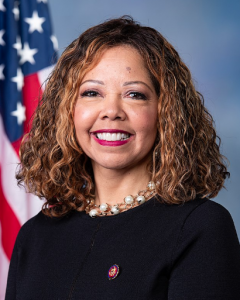 Current Position: US Representative of GA-06 since 2019
Current Position: US Representative of GA-06 since 2019
Affiliation: Democrat
District: portions of the northeast Atlanta metropolitan area, including the cities of Johns Creek, Peachtree Corners, Norcross, Lawrenceville, Duluth, Snellville, Suwanee, and Buford. It covers most of Gwinnett County and a portion of northeastern Fulton County.
Upcoming Election:
Featured Quote:
One of my most important jobs as a member of Congress is helping with your federal cases. If you’d like to request support with a case, please call our office at (470) 773-6330. Shelly A. from Atlanta requested our assistance with a passport renewal, which she later received.
Rep. Lucy McBath – Changing Georgia & Turning Tragedy Into Action | The Daily Social Distancing Show
OnAir Post: Lucy McBath GA-07
Austin Scott GA-08
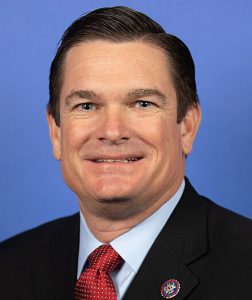 Current Position: US Representative of GA-08 since 2011
Current Position: US Representative of GA-08 since 2011
Affiliation: Republican
Former Position: President of the Southern Group, LLC and a partner in Lockett Station Group, LLC
District: Central and south-central Georgia, and stretches from the geographical center of the state to the Florida border. The district includes the cities of Perry, Cordele, Tifton, Moultrie, Valdosta, and portions of Macon.
Upcoming Election:
Scott is president of the Southern Group, LLC and a partner in Lockett Station Group, LLC. Scott was first elected to the Georgia House of Representatives at the age of 26. In 2001, Scott was the first Republican in the Georgia House to work with Democrats to remove the Confederate battle emblem from the state’s flag.
OnAir Post: Austin Scott GA-08
Andrew Clyde GA-09
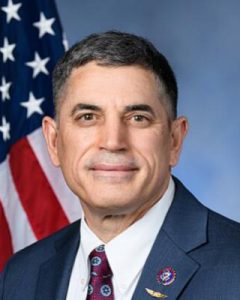 Current Position: US Representative of GA-09 since 2021
Current Position: US Representative of GA-09 since 2021
Affiliation: Republican
Former Position: Gun store owner
District: The district serves a large swath of exurban and rural territory north of Atlanta, including Gainesville, Toccoa, Dawsonville, and Dahlonega.
Upcoming Election:
In 2020, Clyde ran to represent Georgia’s 9th congressional district. The same year, he sued Athens, Georgia, over its shelter-in-place COVID-19 restrictions. As a representative, Clyde voted against certifying Arizona’s and Pennsylvania’s 2020 U.S. presidential election results. He described the 2021 United States Capitol attack as “no insurrection” and said it resembled a “normal tourist visit”, even though he previously acknowledged that he had helped to barricade the House chamber “from the mob who tried to enter.
OnAir Post: Andrew Clyde GA-09
Mike Collins GA-10
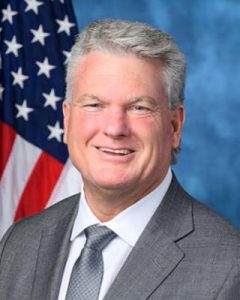 Current Position: US Representative of GA 9th District since 2021
Current Position: US Representative of GA 9th District since 2021
Affiliation: Republican
Former Positions: Businessman
District: Located in the eastern part of the state between Atlanta and Augusta, the district boundaries include the cities of Athens, Eatonton, Jackson, Milledgeville, Monroe, Washington, Watkinsville, Winder, and Wrightsville.
Upcoming Election:
Collins’s father, the late Mac Collins, also served in the House of Representatives, representing Georgia’s 3rd congressional district. Collins’ business ‘Collins Trucking’ is a sponsor of the Butts County, Georgia Historical Society.
OnAir Post: Mike Collins GA-10
Barry Loudermilk GA-11
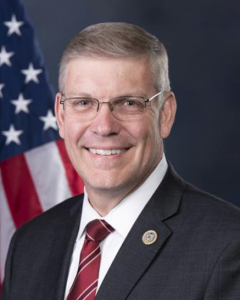 Current Position: US Representative of GA-11 since 2015
Current Position: US Representative of GA-11 since 2015
Affiliation: Republican
District: Located in the northwestern portion of the Atlanta metropolitan area, the district covers the entirety of Bartow, Cherokee and Pickens counties, as well as northwestern and central Cobb County. It includes Cartersville, Kennesaw, Woodstock and most of Marietta.
Upcoming Election:
Featured Quote:
Returning from testifying in the Senate – where there isn’t a mask mandate – we had to cross the DMZ (Deplorable Mask Zone) into the Socialist controlled House side, where masks are mandated and police are empowered to arrest anyone exercising personal responsibility. short video
Rep. Loudermilk Discussing Pelosi Waging Political War Against Republicans
OnAir Post: Barry Loudermilk GA-11
Rick W. Allen GA-12
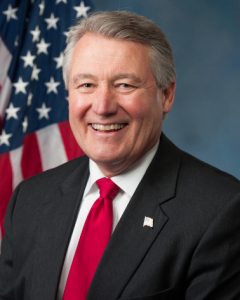 Current Position: US Representative of GA-12 since 2015
Current Position: US Representative of GA-12 since 2015
Affiliation: Republican
Former Position: Founder of construction company from 1980 – 2015
District: Portions of the eastern and southeastern parts of the state. It includes the cities of Augusta, Dublin, Douglas, and Statesboro.
Upcoming Election:
Featured Quote:
House Democrats just paved the way for taxpayer-funded abortions by rejecting the long-standing Hyde Amendment. This is insane
OnAir Post: Rick W. Allen GA-12
David Scott GA-13
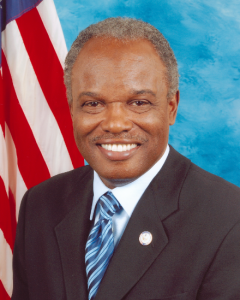 Current Position: US Representative of GA-13 since 2003
Current Position: US Representative of GA-13 since 2003
Affiliation: Democrat
Former Positions: State Delegate from 1983 – 2003; State Delegate from 1975 – 1983
Other Positions: Committee on Agriculture
District: Southern and western portions of the Atlanta metropolitan area and includes the cities of Austell, Jonesboro, Mableton, Douglasville, Stockbridge, and Union City, as well as the southern fourth of Atlanta itself.
Upcoming Election:
Featured Quote:
Wishing all the best to @riseofdrob and @KennySelmon from #GA13, and all #TeamUSA athletes competing in the #TokyoOlympics this summer! You make our nation proud.
OnAir Post: David Scott GA-13
Marjorie Taylor Greene GA-14
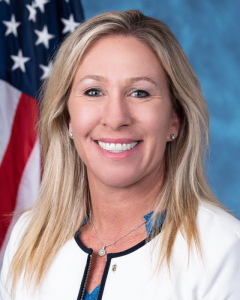 Current Position: US Representative of GA 14th District since 2021
Current Position: US Representative of GA 14th District since 2021Affiliation: Republican
District: northwest Georgia and includes the cities of Rome, Calhoun and Dalton.
Upcoming Election:
Featured Quote:
RT if you still have @realDonaldTrump’s back!
A strong supporter of former president Donald Trump, Greene aided and supported Trump’s attempts to overturn the 2020 U.S. presidential election and has since supported Trump’s false claims of a stolen election. Days after Biden’s inauguration, Greene filed articles of impeachment alleging abuse of power.[
OnAir Post: Marjorie Taylor Greene GA-14
More Information
Wikipedia
Contents
The state government of Georgia is the U.S. state governmental body established by the Georgia State Constitution. It is a republican form of government with three branches: the legislature, executive, and judiciary. Through a system of separation of powers or “checks and balances”, each of these branches has some authority to act on its own, some authority to regulate the other two branches, and has some of its own authority, in turn, regulated by the other branches. The seat of government for Georgia is located in Atlanta.
Executive
The current statewide elected officials are as follows:[1][2]
The main executive official in Georgia is the Governor. They are elected by the voters of the state for a term of four years. No person may hold the office more than twice consecutively. The governor oversees the state budget and thus possesses great power over all state finances. Additionally, the governor is responsible for the nomination of over a thousand officials to a variety of positions in state government, one of the largest rosters of any U.S. state.[citation needed] Those nominated must be approved by the state legislature. Regulations are codified in the Rules and Regulations of the State of Georgia.[3]
In addition, there are three other state executive nonpartisan offices:
| Office | Incumbent | Appointment | |
|---|---|---|---|
| Georgia State Auditor | Greg Griffin | appointed by joint resolution of the General Assembly[4] | |
| Georgia State Treasurer | Steve McCoy | appointed by the State Depository Board[5] | |
| Georgia Commissioner of Natural Resources | Walter Rabon | Nominated by the Georgia Board of Natural Resources, appointed by the Governor[6] |
Agencies

There are several departments, agencies and other entities within the government, including the:
- Georgia Department of Administrative Services
- Georgia Department of Agriculture
- Georgia Department of Audits and Accounts
- Georgia Department of Banking and Finance
- Georgia Department of Behavioral Health and Developmental Disabilities
- Georgia Bureau of Investigation
- Georgia Department of Community Affairs
- Georgia Department of Community Health
- Georgia Department of Community Supervision
- Georgia Department of Corrections
- Georgia Department of Defense
- Georgia Development Authority
- Georgia Department of Driver Services
- Georgia Department of Early Care and Learning
- Georgia Department of Economic Development
- Georgia Department of Education
- Georgia Department of Human Services
- Georgia Department of Insurance
- Georgia Department of Juvenile Justice
- Georgia Department of Labor
- Georgia Department of Natural Resources
- Georgia Department of Public Health
- Georgia Department of Public Safety
- Georgia Public Service Commission
- Georgia Department of Revenue
- Georgia Department of Transportation
- Georgia Department of Veterans Service
Legislature

The legislature of Georgia is the General Assembly, a bicameral body consisting of the Senate and the House of Representatives. The Senate has 56 members and the House has 180 members. Lawmakers serve 2-year terms and work part-time. Each member of the legislature represents geographically distinct districts from which each voter may give support to one candidate for each body. For most of its history, the state used an unusual county unit system by which districts were drawn such that each had the same area. However, population growth in cities across the state led to the rural population, which was in relative decline, having disproportionate power in government. After the U.S. Supreme Court declared such unequal representation to be unconstitutional in Gray v. Sanders in 1963, state officials began to redefine legislative districts so that each had a similarly sized population. Both senators and representatives have terms of two years. There are no limits on the number of terms any person may serve. Its legislative acts, generically called “chapter laws” or “slip laws” when printed separately, are published in the official Georgia Laws and are called “session laws“.[7] These in turn have been codified in the Official Code of Georgia Annotated (O.C.G.A.).[7]
From bill to law
The General Assembly transforms bills into laws. A bill is created after citizens contact their representatives about an issue they care about. The legislator drafts a bill that addresses the concerns of citizens. The lawmaker sponsors the bill and files it with either the Clerk of the House or Secretary of Senate to be registered, introduced, and assigned to a committee for review. While in committee, public testimonies and commentary are presented to the committee. After studying the bill, the committee will recommend one of the following: to pass, not pass, pass with changes, or hold bill during its second reading. The bill will proceed to its third reading if viewed favorably by the committee. Bills will be called to the floor for the first ten days of a session. After the tenth day, the Rules Committee starts prioritizing bills to be called. The Rules Committee prepares which bills will be called to the floor on the next day. Once on the floor, the General Assembly may vote and/or make amendments. The bill requires a majority vote to pass through the chamber it originated from by Crossover Day, which is the 30th day in session. Bills that do not advance to the other chamber by this day will not be considered for the remainder of the session. Both the House and Senate follow these rules before sending it to the other house for review. The bills continues to be amendment until both sides can agree on the same version of the bill. Once this is reached, the bill is sent to the governor to be enacted or vetoed, which in the latter case will require a 2⁄3 majority vote from both houses to overcome the veto. The bill is usually sent to the governor after sine die, the last day of the legislative session. The governor has 40 days to approve or veto the bill after sine die before it is automatically enacted. If the bill is requested to arrive at the governor’s desk earlier than sine die, the governor must sign. If the bill is sent to the governor during the session, the governor has six days to sign before the bill becomes a law. The law is enacted on July 1.[8]
Judiciary

The highest judiciary power in Georgia is the Supreme Court, which is composed of nine judges. The state also has a Court of Appeals made of 12 judges. Georgia is divided into 49 judicial circuits, each of which has a Superior Court consisting of local judges numbering between two and 19 depending on the circuit population. Under the 1983 Constitution, Georgia also has magistrate courts, probate courts, juvenile courts, state courts; the General Assembly may also authorize municipal courts.[9] Other courts, including county recorder‘s courts, civil courts and other agencies in existence on June 30, 1983, may continue with the same jurisdiction until otherwise provided by law.[9]
Each county in Georgia has at least one superior court, magistrate court, probate court, and where needed a state court and a juvenile court; in the absence of a state court or a juvenile court, the superior court exercises that jurisdiction.[9]
All serving judges are elected by popular vote either from the entire state in the cases of the Supreme Court and the Court of Appeals or from a given circuit in the case of Superior Courts. Judges of the Supreme Court and the Court of Appeals serve for terms of six years. Judges of other courts serve for terms of four years.
Local government

The Georgia Constitution grants cities and counties a significant amount of home rule authority.[7]
Counties
Georgia is divided into 159 counties, more than any other U.S. state except Texas. Among all counties, 149 of them are governed by a committee made of between three and eleven commissioners. The other 10 counties are overseen by a single commissioner. All commissioners are elected by the voters of their county for terms that range between two and six years with most counties having terms lasting four years. Serving members wield both executive and legislative power in their county.
Cities
Most of the 536 cities in Georgia are governed by a mayor–council system.[citation needed] All municipalities in the state are considered cities. Most basic public services rendered outside of the cities are provided by the counties.
See also
- Elections in Georgia (U.S. state)
- Politics of Georgia (U.S. state)
- Law of Georgia (U.S. state)
- List of state government committees of Georgia (U.S. state)
References
- ^ “Elected officials”. Archived from the original on January 15, 2019. Retrieved January 15, 2019.
- ^ “PSC meet the commission”. Archived from the original on January 16, 2019. Retrieved January 15, 2019.
- ^ “Administrative Law Sources – Georgia Legal Research – LibGuides at Georgia State University College of Law”. Georgia State University College of Law. Archived from the original on 27 September 2013. Retrieved 22 September 2013.
- ^ “2021 Georgia Code :: Title 50 – State Government :: Chapter 6 – Department of Audits and Accounts :: Article 1 – General Provisions :: § 50-6-1. Creation of Department; State Auditor as Head; Qualifications; Election Procedure; Term; Vacancy”. Justia Law. Retrieved 2024-09-19.
- ^ advance.lexis.com https://advance.lexis.com/container?config=00JAAzZDgzNzU2ZC05MDA0LTRmMDItYjkzMS0xOGY3MjE3OWNlODIKAFBvZENhdGFsb2fcIFfJnJ2IC8XZi1AYM4Ne. Retrieved 2024-09-19.
{{cite web}}: Missing or empty|title=(help) - ^ “Mission and Vision | Department Of Natural Resources Division”. gadnr.org. Retrieved 2024-09-19.
- ^ a b c “Statutes – Georgia Legal Research – LibGuides at Georgia State University College of Law”. Georgia State University College of Law. Archived from the original on 27 September 2013. Retrieved 22 September 2013.
- ^ “Complete Overview of the Legislative Process”. Georgians for a Healthy Future. Archived from the original on 2021-06-26. Retrieved 2021-06-26.
- ^ a b c State Judicial System Archived 2007-09-27 at the Wayback Machine from the website of the Supreme Court of Georgia
External links
- GeorgiaGov
- Georgia General Assembly
- Georgia Supreme Court
- State of Georgia recipient profile on USAspending.gov
